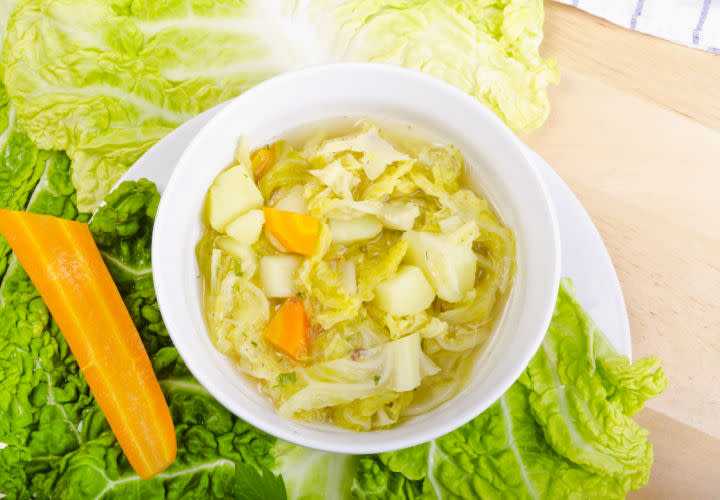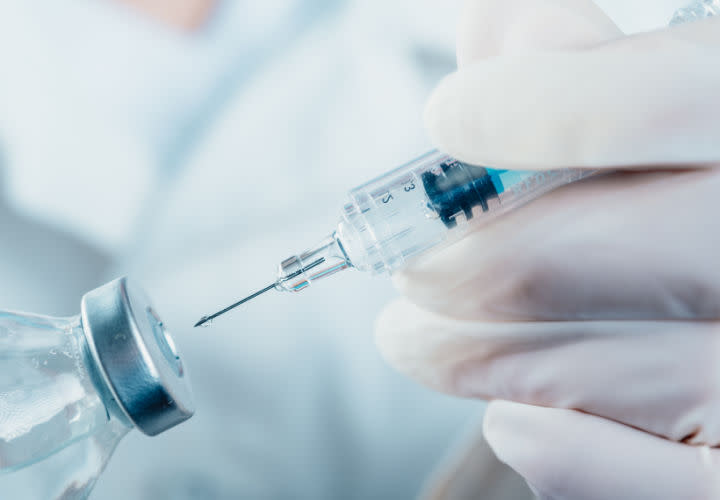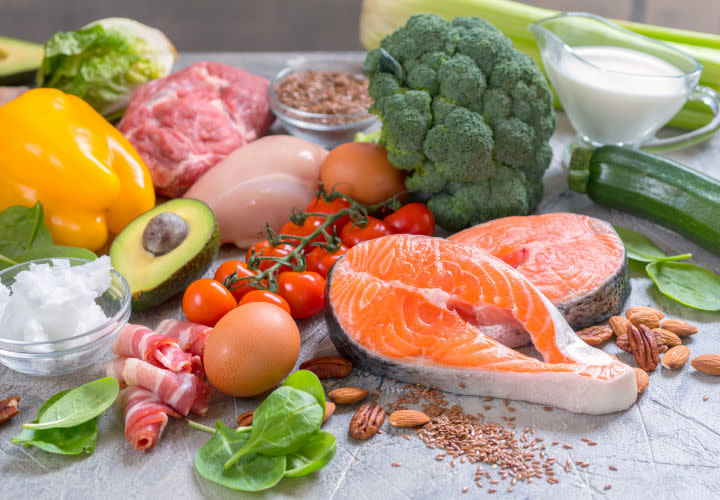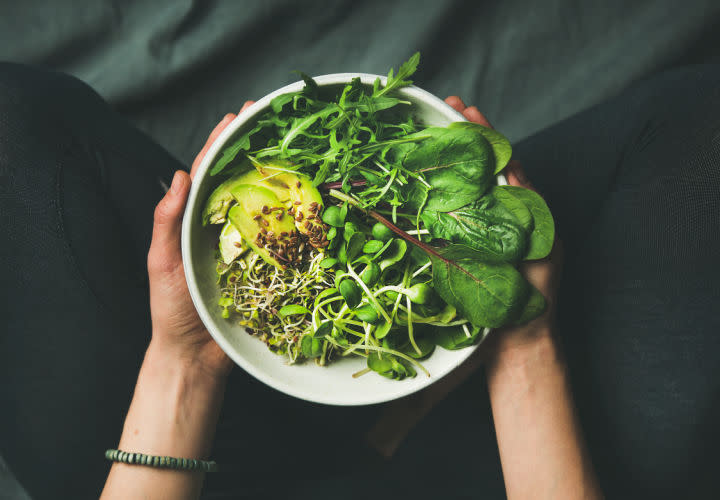The 5 Worst Fad Diets That Actually Do Nothing For Weight Loss

Losing weight takes a lot of hard work, but that doesn’t mean you have to resort to extreme calorie restriction, eliminating entire food groups, or depriving yourself of nutrients. Fad diets are the worst offenders when it comes to impractical and unsafe dieting advice. Usually promoted by celebrities and influencers, fad diets can be potentially dangerous to your health and are often ineffective for weight loss in the long term.
To learn more about fad diets, we spoke with Bill Bradley, a registered dietitian and founder of Mediterranean Living. He says that the worst fad diets that actually do nothing for weight loss are the cabbage soup diet, juice cleanses, the HCG diet, the ketogenic diet, and the raw food diet. Learn more about these weird and sometimes dangerous weight loss diets!
READ MORE: Health Experts Say These Common Dieting Mistakes Could Be Slowing Your Weight Loss

The Cabbage Soup Diet
While some people claim that they lost as much as 10 pounds on this diet, experts like Bradley don't recommend this crash diet for substation weight loss. Just like the name says, this very low-calorie diet involves consuming fat-free cabbage soup two to three times a day while restricting other food groups. "While it may result in short-term weight loss, it is nutritionally imbalanced and lacks essential nutrients such as protein, healthy fats, and carbohydrates," Bradley explains. "It can lead to nutrient deficiencies, muscle loss, and low energy levels, making it unsustainable and potentially harmful to overall health." Yikes!

Juice Cleanses
Juice cleanses have become popular on the dieting scene in recent years. This diet involves avoiding solid foods and only consuming fruit and vegetable juices for a few days or a week. Some people do a juice cleanse to help lose weight, eliminate "toxins" from the body, and give the digestive system a break. While fruits and vegetables undeniably provide important vitamins and nutrients, drinking only juice may not be as good for you as it sounds.
"While juices can be a good source of vitamins and minerals, they are usually high in sugar and low in protein and fiber, which can lead to unstable blood sugar levels, muscle loss, and slowed metabolism," Bradley says. "Juice cleanses also lack essential nutrients and are not a sustainable approach to long-term weight loss." Even though juice cleanses can be good for your body once in a while, they should not be done consistently and you should be careful about the amount of sugar each juice contains.

The HCG Diet
You may not have heard of this diet, but it is gaining popularity. The Food and Drug Administration (FDA) has warned against this fad diet. They advise consumers to steer clear of over-the-counter weight-loss products that contain HCG. HCG is human chorionic gonadotropin, a hormone produced during pregnancy. It's used mainly to treat fertility issues and it's not approved for over-the-counter use. It also has not been proven to work for weight loss.
"This diet involves taking human chorionic gonadotropin (HCG) hormone supplements, often in the form of injections, while following a very low-calorie diet (VLCD) of 500-800 calories per day," Bradley warns. "Despite claims of rapid weight loss, there is no scientific evidence to support the effectiveness of HCG in weight loss, and VLCDs can be dangerous and lead to nutrient deficiencies, muscle loss, and metabolic slowdown." The HCG diet can have potentially dangerous side effects and it's not sustainable in the long term.

The Ketogenic Diet
Sometimes referred to as the ketogenic diet, the keto diet is a high-fat, low-carbohydrate diet that, Bradley says, "aims to induce a state of ketosis in the body, where it primarily burns fat for fuel instead of carbohydrates." He continues. "While it may result in short-term weight loss, the long-term effects and safety of this diet are still debated among experts. It can be difficult to sustain due to severe carbohydrate restrictions, and it may lead to nutrient deficiencies, constipation, and an increased risk of heart disease due to the high intake of saturated fats." Nobody wants that!

The Raw Food Diet
Similarly, the raw food diet is not ideal for sustainable weight loss in the long run. "This fad promotes eating only raw, uncooked foods, typically fruits, vegetables, nuts, and seeds, while avoiding all cooked and processed foods," Bradley notes. "While raw foods can be nutritious, this diet can be challenging to follow and may result in nutrient deficiencies, especially in protein, vitamin B12, and calcium." And, the raw food diet can also be dangerously low in calories. This, he says, could lead to "inadequate energy intake and difficulties in meeting nutrient needs."
The Bottom Line
So, if you're considering trying any of these fad diets, think again and be sure to consult your doctor to guarantee that it's safe for your weight loss journey. Instead of these fad diets, Bradley suggests opting for the Mediterranean diet instead. "The Mediterranean diet," he explains, "has been associated with numerous health benefits, including weight loss, due to its balanced and nutrient-rich approach to eating." He cites the diet's emphasis on whole, minimally processed foods, healthy fats, lean proteins, and flexibility. Learn how to meal prep on a Mediterranean diet, or, try the green Mediterranean diet!

